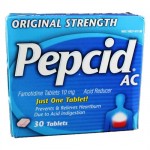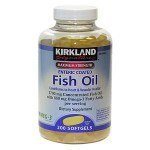
Are you wondering if Imodium is safe and effective for dog use? Good news! This anti-diarrheal has long been given to animals. For pets and people alike, it works just the same by slowing down digestion and giving the small Read More …

Are you wondering if Imodium is safe and effective for dog use? Good news! This anti-diarrheal has long been given to animals. For pets and people alike, it works just the same by slowing down digestion and giving the small Read More …

Does your dog have some sort of tummy discomfort? Is that why you’re wondering if Pepcid AC can be given to canines? Here’s the deal: Vets do prescribe Pepcid for upset stomach and gastric reflux, but using Famotidine (the active Read More …

CoQ10 is a coenzyme with powerful health benefits, but does this apply to dogs as well? First off, canines actually produce their own CoQ10! With the right vitamins and minerals, from regular chow, they do not require this supplementation. And Read More …

Lots of folks take fish oil daily. Omega-3 fatty acids are obviously very valuable from a health standpoint, but what about for your dog? Great news! Reasonably dosed fish oil is not only harmless but several studies have found that Read More …

Melatonin is a naturally occurring hormone that helps with insomnia. It’s fairly effective and has a good safety record. But does this also hold true for dogs? Generally, yes! Animals can be given melatonin, but it should be conservatively dosed Read More …

Are you wondering if Lipitor can lower your dog’s cholesterol? Is is safe? Do canines even benefit from taking statin drugs? Those are excellent questions! Here’s the deal: Dogs are also prone to cardiovascular diseases, but it is high triglycerides Read More …

Are you wondering if Celexa is a safe antidepressant for dogs? First, it’s not uncommon for this SSRI to cause adverse effects in humans. And, unfortunately, this drug is even riskier for dogs. One thing is absolutely certain: Going it Read More …

When it comes to vitamin D, dogs and humans obtain sufficient amounts in quite different ways. The fact is that people naturally produce it in their skin, but canines do not. Many dogs are indeed lacking in vitamin D3. On Read More …